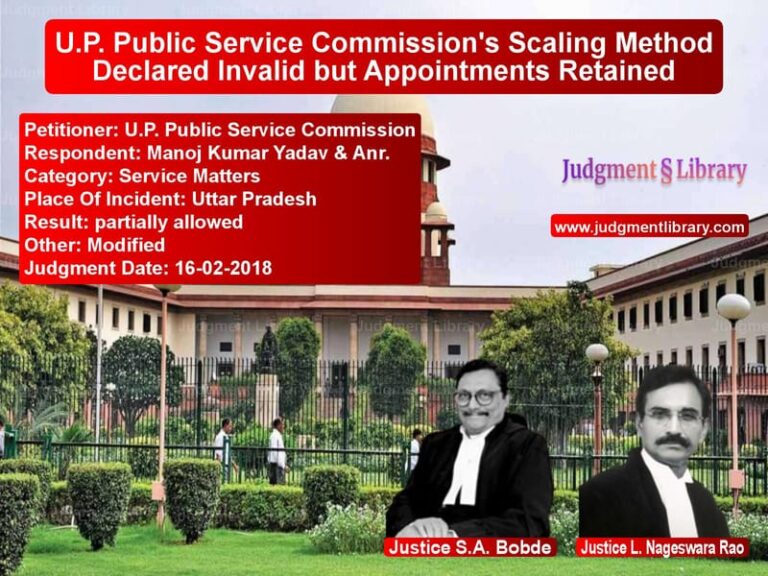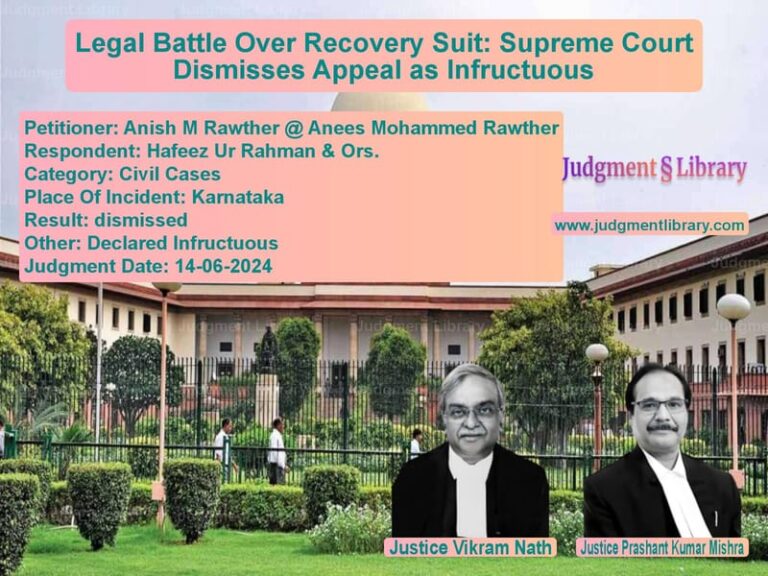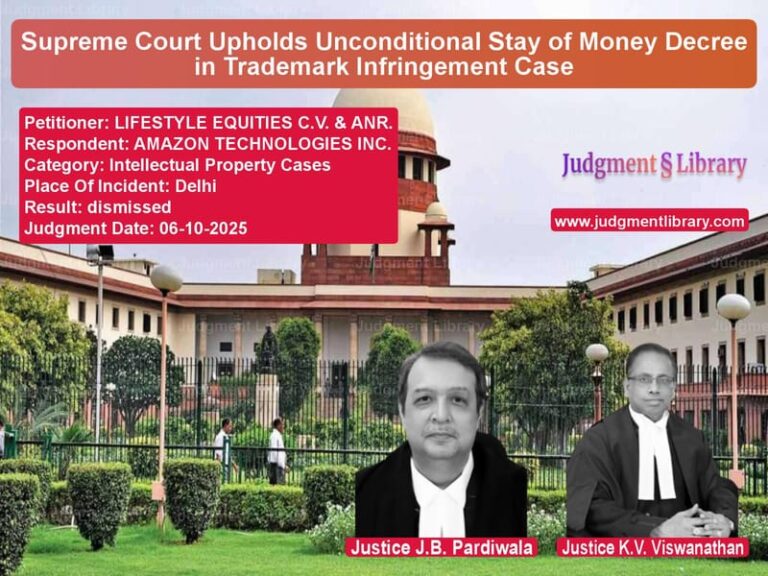Supreme Court Ends COVID-19 Limitation Extension: Key Takeaways for Legal Proceedings
The case of In Re: Cognizance for Extension of Limitation was a crucial decision by the Supreme Court of India, addressing the impact of the COVID-19 pandemic on the filing deadlines for legal proceedings. Given the extraordinary circumstances brought about by the pandemic, the Supreme Court exercised its suo motu powers to extend the limitation periods prescribed under various laws. This judgment, delivered on March 8, 2021, formally brought an end to the period of extended limitation.
Background of the Case
With the onset of the COVID-19 pandemic in early 2020, courts and tribunals across India faced significant operational challenges. Lockdowns, movement restrictions, and disruptions in normal functioning prevented litigants from filing petitions, appeals, suits, and other legal proceedings within the prescribed limitation periods. Recognizing these difficulties, the Supreme Court took suo motu cognizance of the situation.
On March 23, 2020, the Supreme Court issued an order extending the limitation period for all legal proceedings under both general and special laws from March 15, 2020, onwards. This extension was further continued through various subsequent orders, ensuring that litigants were not unfairly prejudiced due to pandemic-induced delays.
Key Issues Before the Supreme Court
- Whether the extension of limitation should continue in light of improving pandemic conditions.
- What should be the final cutoff date for computing limitation periods?
- How should cases where limitation expired during the extended period be handled?
- What would be the impact on proceedings under specific laws such as the Arbitration and Conciliation Act, Commercial Courts Act, and Negotiable Instruments Act?
Arguments Considered by the Supreme Court
1. Attorney General’s Recommendations
The learned Attorney General for India suggested a structured approach to phasing out the extension, balancing judicial efficiency with fairness to litigants. He proposed:
- Providing a clear and final date for ending the extension.
- Allowing a reasonable window for litigants whose limitation periods expired during the pandemic.
- Ensuring that specific laws with statutory limitation periods, such as the Arbitration and Conciliation Act, are also covered.
2. Need for a Structured Phase-Out
The Supreme Court acknowledged that while the pandemic was not completely over, there was considerable improvement in conditions. Most courts and tribunals had resumed operations, either physically or in virtual mode. The need for an indefinite extension of limitation had diminished.
Supreme Court’s Final Directions
After considering all arguments, the Supreme Court issued the following key directions:
1. Computation of Limitation Period
- The period from March 15, 2020, to March 14, 2021 shall be excluded from the computation of limitation for all suits, appeals, applications, and proceedings.
- The balance period of limitation remaining as of March 15, 2020 shall be available from March 15, 2021.
2. Special Consideration for Expired Limitation
- If the limitation period for a case expired between March 15, 2020, and March 14, 2021, the litigant shall have 90 days from March 15, 2021 to file the proceeding.
- If the remaining limitation period from March 15, 2021, is more than 90 days, then the longer period shall apply.
3. Applicability to Specific Laws
The Supreme Court ensured that the exclusion of the limitation period applied to the following laws:
- Section 23(4) and Section 29A of the Arbitration and Conciliation Act, 1996.
- Section 12A of the Commercial Courts Act, 2015.
- Provisions (b) and (c) of Section 138 of the Negotiable Instruments Act, 1881.
- Any other laws that prescribe limitation periods for initiating proceedings or outer limits within which courts/tribunals can condone delays.
4. Amendment to Containment Zone Guidelines
The Supreme Court directed the Government of India to amend the containment zone guidelines to allow:
- Regulated movement for medical emergencies.
- Provision of essential goods and services.
- Other necessary functions, including time-bound applications for legal purposes, education, and job-related requirements.
Final Judgment
The Supreme Court disposed of the suo motu writ petition, ruling that:
- The extension of limitation had served its purpose and should now end.
- The structured phase-out ensured fairness for all litigants affected by the pandemic.
- The judiciary would return to normal limitation periods, subject to statutory provisions allowing condonation of delays.
Implications of the Judgment
The Supreme Court’s ruling has significant implications:
- It provides clarity on how limitation periods should be computed for cases affected by the pandemic.
- It ensures that litigants are not penalized for delays caused by circumstances beyond their control.
- It allows courts and tribunals to resume normal operations with a structured transition period.
- It balances judicial efficiency with the need for fairness in the wake of an unprecedented crisis.
The Supreme Court’s decision ensures that the legal system moves forward while protecting the rights of those who faced genuine difficulties during the pandemic.
Petitioner Name: Suo Motu Writ Petition.Respondent Name: Not Applicable.Judgment By: Justice S. A. Bobde, Justice L. Nageswara Rao, Justice S. Ravindra Bhat.Place Of Incident: India.Judgment Date: 08-03-2021.
Don’t miss out on the full details! Download the complete judgment in PDF format below and gain valuable insights instantly!
Download Judgment: suo-motu-writ-petiti-vs-not-applicable-supreme-court-of-india-judgment-dated-08-03-2021.pdf
Directly Download Judgment: Directly download this Judgment
See all petitions in Fundamental Rights
See all petitions in Public Interest Litigation
See all petitions in Legislative Powers
See all petitions in Judgment by S. A. Bobde
See all petitions in Judgment by L. Nageswara Rao
See all petitions in Judgment by S Ravindra Bhat
See all petitions in allowed
See all petitions in supreme court of India judgments March 2021
See all petitions in 2021 judgments
See all posts in Constitutional Cases Category
See all allowed petitions in Constitutional Cases Category
See all Dismissed petitions in Constitutional Cases Category
See all partially allowed petitions in Constitutional Cases Category







